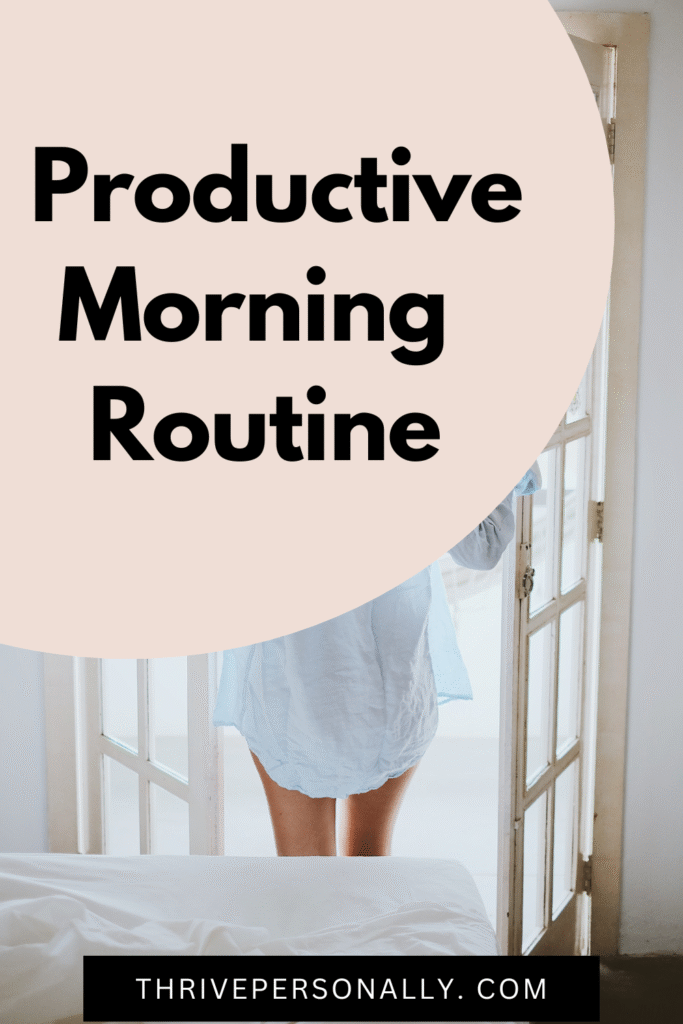I used to wake up in a way that already made me feel behind. My phone flashed news and messages that I didn’t need. I dragged myself out of bed, grabbed whatever clothes looked clean, and tried to start the day with a head still heavy from yesterday. That kind of lifestyle drains you, makes you short-tempered, and leaves you constantly rushing.
One morning, I got tired of it. I changed a few small things, stuck with them, and over time those little adjustments grew into a routine that made my mornings smoother. I’m writing this so you can take what works, leave what doesn’t, and shape your own style.
In this post, I’ll share a simple but effective morning and daytime routine. You’ll learn why each step matters, how to fit it into your busy life, and how to adjust it when life changes. Treat it as a map: use what helps, skip what doesn’t, and tweak the details until it feels like your own.
Why Your Morning Routine Matters More Than You Think
The way you begin your day sets the tone for everything that follows. If you rush in the morning, your mind learns to expect chaos. A calm, steady start trains your brain to focus. Small wins—like drinking water, stretching, or planning—signal to your mind that you’re in control.
The purpose of a routine is not perfection. It’s to give you steady energy and focus so you can handle what matters. When you treat your routine as a ritual, you’re more likely to keep it.
Your Morning Actually Starts the Night Before
What happens in the evening shapes the way you wake up. A few simple bedtime habits can set you up for better mornings:
Plan Tomorrow in 5–10 Minutes
Write down two or three important tasks for the next day. Keep it simple and clear. This keeps you from wasting energy in the morning deciding what to do first.
Read also: 9 Ways to Have Slow Mornings
Prepare Your Things
Lay out clothes, pack your bag, and set aside anything you’ll need. If you plan to exercise, place your workout clothes where you’ll see them. Small steps like this save mental energy in the morning.
Limit Screens Before Bed
Bright screens make it harder to fall asleep. Put away devices at least 30 minutes before bed. Use that time to read, plan, or wind down.
Stick to a Bedtime
Aim for enough sleep so you wake up refreshed. Even one extra hour of sleep can transform how you feel in the morning.
Read also: A 12-Hour Shift Morning Routine
Do Your Most Important Work First
Morning is when your head is clearest. Use this time for deep, focused work.
Decide the night before what your first task will be.
Work in a block of 45–90 minutes without distractions.
Create a space, even a small corner, where you only do focused work.
The first deep block can set the pace for your entire day.
Keep Energy Steady Throughout the Day
Productivity is not just about discipline—it’s also about managing energy.
Eat a Balanced Breakfast
Choose foods with protein, healthy fats, and fiber to keep blood sugar stable. If you drink coffee, have it after eating so it boosts focus without making you jittery.
Move During the Day
Stretch, walk, or get outside for sunlight. Small breaks keep energy steady and prevent burnout.
Take Smart Breaks
Short breaks during long tasks help creativity and focus. Use them to breathe, stretch, or reset—then get back on track.
Stay Hydrated
Even mild dehydration lowers focus. Keep water nearby and sip throughout the day.
Structure Your Work with Blocks
Unstructured days feel busy but produce less. Structure helps you focus where it matters.
Break work into blocks of 60–90 minutes for deep tasks, or shorter bursts for lighter ones.
Do your hardest work when your energy is highest.
Batch similar tasks—like emails or calls—into one session.
Protect your focus by closing unused tabs, muting notifications, and setting clear availability times.
Meetings and Interruptions
Meetings often waste time. Keep them purposeful.
Ask if a meeting can be replaced with an email.
If needed, set an agenda and time limit.
Batch calls or messages instead of scattering them throughout the day.
The fewer interruptions you allow, the more energy you save for real work.
Lunch Matters
Lunch is not just fuel—it’s a reset.
Step away from your desk to eat.
Take a real break to walk or rest.
If you feel sluggish after eating, do lighter tasks and save deep work for later.
Keep Planning Simple
Check in on your progress during the day. A five-minute review at lunch can keep you from getting lost in busywork.
Limit your to-do list to three to five important tasks. Long lists overwhelm and drain motivation.
Evening Wind-Down
How you close your day matters as much as how you start it.
Do a small closing ritual, like tidying your desk or writing a one-line summary of the day.
Disconnect from screens before bed.
Give yourself quiet time so your mind knows it’s time to rest.
Sleep is where your brain restores energy and prepares for the next day.
Adjusting When Life Gets Hectic
Life won’t always allow a perfect routine. That’s okay.
Keep the routine minimal when short on time—just water, movement, and one important task.
Combine steps when needed, like planning while commuting.
Accept off days. Do something small instead of giving up entirely.
Final Thoughts
An effective morning and daytime routine is not about doing more—it’s about protecting your energy, attention, and time. Change your mornings, and you change your days.
Start small tonight. Choose two or three things for tomorrow morning, prepare for them, and wake up with intention. Over weeks, those little actions will reshape your attitude toward work and life.
Be simple, be kind to yourself, and take it one steady step at a time. Remember: your routine is your support, not your judge.
Save the pin for later



